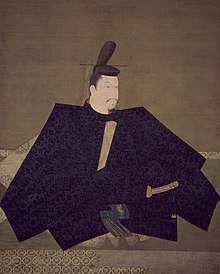The First Opium War was a perfect example of the East (China, Japan, Korea, etc.) and West (Europe and the Americas) fighting over control of a situation in which mutual power was needed. The Qing dynasty was in power in China during the first Opium War and the Qing were infamous for their strong handed approach to leadership. When dealing with the West, the Qing at first where in complete control of the relationship. The West, the British in particular wanted tea from China; whereas all the Qing were interested in was the West’s money. The British Empire did not look favorably upon this method of trade; at this point in history they had amassed one of the largest empires in the history of the world and they preferred the barter system to outright payment. China under the rule of the Qing had almost everything they wanted or needed but the British saw something they didn’t have and this product would swing China into bartering with the British as opposed to the capitalist system they were in at that time; this item was opium.
British opium was grown in India before and around the time of the Opium Wars. Opium was initially used to cure diarrhea but it soon was more commonly used as a recreational drug and outlawed in Britain by the year 1799 C.E. The Qing banned both production and use of Opium in 1800 and in 1813 it outlawed smoking opium.
The East India Company, which at this time was the economic arm of the British Empire invested heavily in opium cultivation. When the Qing Dynasty forbade the selling of Opium the East India Company found other ways to sell opium but not directly. The East India Company sold opium through middlemen who operated illegally and sold the opium to the Chinese public. By doing this they got their product out into the market and sure enough the public wanted more of this highly addictive drug which gave the British what they wanted, a trading leverage they could use against the Qing Empire.
By the year 1831 there were almost 200 smuggler’s boats off the coast of China. The Qing Empire called for public debate on how to solve the opium issue. This debate came to the conclusion that controlling the user was not working so well, so maybe controlling the sellers of opium would be a better approach. Lin Zexu was appointed by the Qing Dynasty to deal with the Opium Issue and arrested some 1700 dealers; ordering western traders surrender all opium in exchange for tea. When these western traders refused he laid a siege on them starting the Opium Wars.
When the western traders finally surrendered to Lin Zexu they turned in 2.6 million pounds of opium which was poured into the China Sea. The British saw these actions as an act of war and started to make war on the Qing. The British sent from India a small expeditionary force and shut down the ports of Ningbo and Tianjin. A preliminary agreement was reached to cede Hong Kong and pay war losses to the British but it was not well received on both sides. Shortly after this weak peace was made hostilities resumed again, the resurgence of war did not last long and the British soon defeated the weaker Qing Dynasty. A peace treaty was signed aboard a ship at gun point, obviously this treaty favored the British, not the Qing. The Treaty of Nanjing officially ended the First Opium War; the treaty handed Hong Kong over to the British, opened five new ports, granted Britain "most favored nation" status, and the Qing had to pay 21 million silver dollars to cover British expenses and war losses. This treaty also opened up trade to the United States and France.




